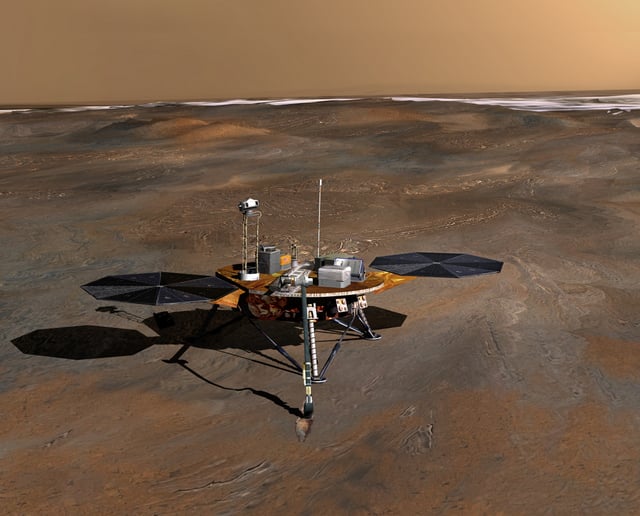[/caption]
Update: 10/31: Phoenix communicated with NASA's Mars Odyssey orbiter late Thursday. The communication reinforced a diagnosis that the spacecraft is in a precautionary mode triggered by low energy. Mission engineers are assessing the lander's condition and steps necessary for returning to science operations.
The Phoenix Lander is not responding to attempts to communicate with it. Earlier today, we
reported that Phoenix had gone into safe mode
. The lander experienced a low-power fault in the electrical system due to the reduction of solar-electric power to shorter daylight hours and a dust storm, as well as extremely cold weather. Engineers for the mission were able to send a command to restart a battery that had shut off, and were hopeful that further communications would resume without incident. However, Phoenix did not respond to one of the Mars orbiter's attempt to communicate with it Wednesday night and Thursday morning.
I don't know about the rest of you, but I'm not ready to say goodbye to Phoenix quite yet…
Mission controllers believe the most likely situation to be that declining power has triggered a pre-set precautionary behavior of waking up for only about two hours per day to listen for an orbiter's hailing signal. If that is the case, the wake-sleep cycling would have begun at an unknown time when batteries became depleted.
"We will be coordinating with the orbiter teams to hail Phoenix as often as feasible to catch the time when it can respond," said Phoenix Project Manager Barry Goldstein at NASA's Jet Propulsion Laboratory, Pasadena, Calif. "If we can reestablish communication, we can begin to get the spacecraft back in condition to resume science. In the best case, if weather cooperates, that would take the better part of a week."
Stay tuned...
Source:
JPL
 Universe Today
Universe Today
